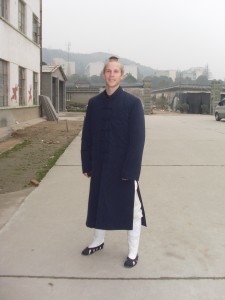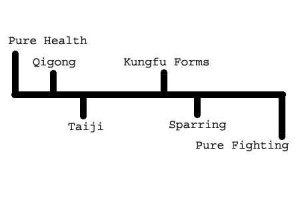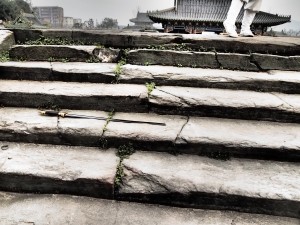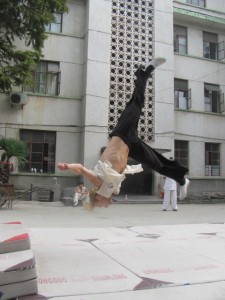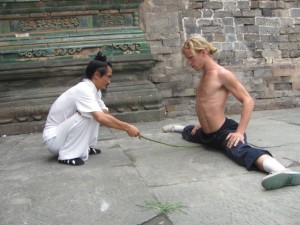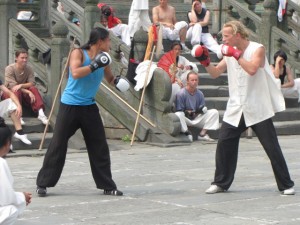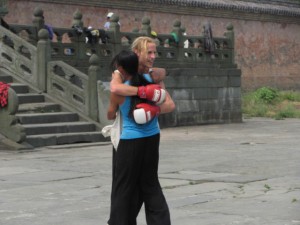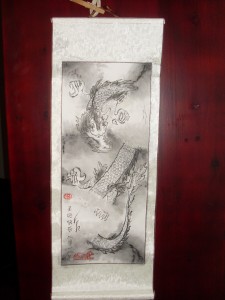 I have returned to Wudang, China, once more. I am in the agony of what I have previously dubbed “Week One Syndrome,” though it has been a light week and really not as excruciating as I was afraid it would be.
I have returned to Wudang, China, once more. I am in the agony of what I have previously dubbed “Week One Syndrome,” though it has been a light week and really not as excruciating as I was afraid it would be.
I had a wonderful time at home, though it was by far my most stressful trip home for work and family reasons I won’t get into right now. While I was home this time, I let myself relax a bit on my kungfu training and focused more on my internal training, trying to keep deep breathing and keep my emotions steady in the face of the above mentioned stress. And — and I hope you can understand what I mean — I tried to consciously unclench the fist of self-discipline I had going on and hold my emotions and will in a gentler grip.
I felt this was immensely constructive, and it got me thinking about another aspect of self cultivation. I think that, inherent in the ability to push yourself to be better is at least a grain of self-criticism. You have to be able to look at yourself and find your own weaknesses, find the things about yourself that are not satisfying to you. I spend a fair amount of time in this mode during my training, always looking for ways to improve. On the other hand, the best way to exercise the powers developed in training, and to find the satisfaction that is the goal of the training, is to accept yourself and, indeed, enjoy the fruits of your hard work.
The trouble is that we often get stuck in one or the other. Too much self-criticism makes us unhappy and stressed, too much self-acceptance makes us complacent and stagnant. This puts me in mind of something my kungfu uncle Zhou Xuan Yun said during his talk in DC in January. I paraphrase, but he said that life is what happens when Yin and Yang interact. So if self-criticism and self-acceptance are pure concepts defining the extremes of yourself, growth and life are only possible when moving naturally between the two, holding one but easily and regularly reaching for the other.
The challenge is to find real balance between the two in our subjective worlds. Our only guide is past experience, and if you have never pushed yourself hard enough or accepted yourself completely enough, moving toward balance feels so unnatural that you think you are actually losing balance. Disciplined effort seems too hard, and you think you just can’t do it. Loving yourself feels too alien, and you think it’s not real. Real hard work is required to understand the two extremes enough to accurately sense where the healthy balance really is.
I think this is a good thing to meditate on in times of transition like I am facing now. The only constant is change, after all.

